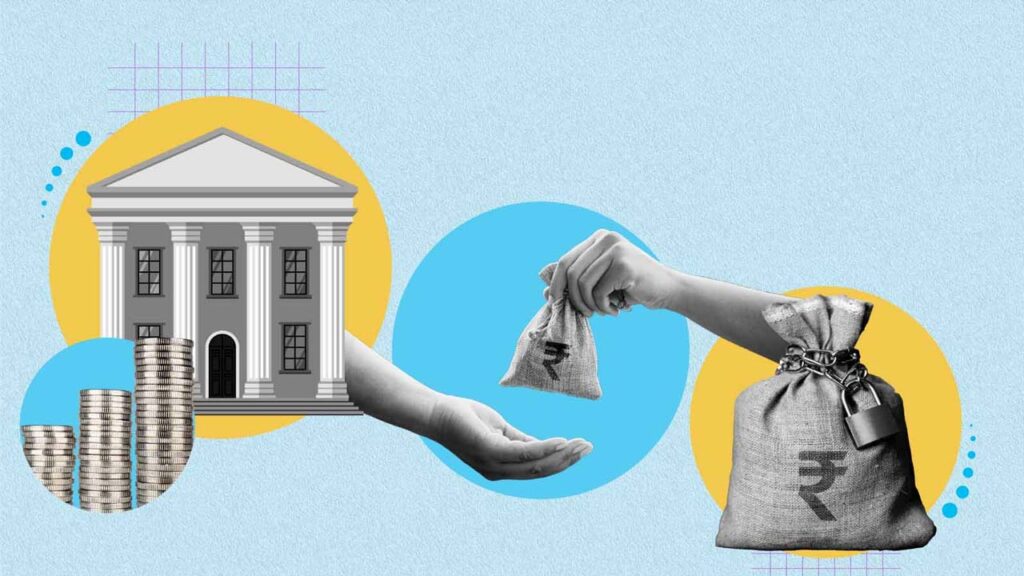SGDLoan.com – Taking a loan from bank is a financial decision that requires proper understanding, planning, and awareness of your financial capacity.
In Singapore, loans are a common and accessible tool for individuals and businesses alike. Whether you’re planning to buy your first home, invest in education, launch a new business, or even purchase a vehicle, banks offer structured loan products tailored for these purposes.
This article provides an in-depth look into the various types of loans from banks in Singapore, how to apply for them, and how to manage them responsibly — both financially and from an accounting standpoint.
Loan from Bank in Singapore: Overview

When applying for a loan from bank, it’s essential to understand the financial environment of Singapore.
Singapore has one of the most robust and trusted banking systems in the world. Regulated by the Monetary Authority of Singapore (MAS), the country’s financial institutions are required to follow stringent lending and compliance standards.
A loan from a bank is essentially a sum of money borrowed with the agreement that it will be repaid over time with interest. These loans can vary greatly in terms of purpose, duration, repayment terms, and interest rates.
There are several reasons why Singapore residents seek bank loans: home purchases, educational financing, business capital, vehicle purchases, or simply personal cash flow support. Each type of loan comes with distinct terms and eligibility criteria, which we will explore in detail.
Loan from Bank for House

Homeownership in Singapore is often achieved through a loan from bank for house.
Banks in Singapore provide various home loan packages, especially for HDB flats, executive condominiums, and private properties. This type of loan allows individuals to own property by spreading the repayment across several years.
Features of Housing Loans in Singapore:
- Loan-to-Value (LTV) Ratio: Generally, you can borrow up to 75% of the property value, with the remaining requiring a cash and CPF down payment.
- Interest Rates: Banks offer fixed, floating, and board rates. Fixed rates offer stability, while floating rates may vary based on SORA or other internal bank benchmarks.
- Repayment Tenure: For HDB flats, tenure is capped at 30 years, while for private properties, it can go up to 35 years.
- Lock-in Period: Most banks impose a 2–3 year lock-in period, during which early repayment may incur penalties.
Required Documents:
- Identity documents (NRIC or passport)
- Option to Purchase (OTP) or Sale and Purchase Agreement
- CPF contribution history (12 months)
- Latest payslips and Notice of Assessment
Banks like DBS, OCBC, and UOB offer online tools to help you calculate your housing loan eligibility instantly.
Education Loan from Bank

Planning to study locally or abroad? An education loan from bank can bridge your financial gap.
These loans are designed to cover tuition fees, overseas living expenses, and other study-related costs. Singapore banks offer education loans for diploma, undergraduate, and postgraduate courses in both local and overseas institutions.
Benefits of Education Loans:
| Feature | Description |
|---|---|
| Loan Quantum | Up to 10x monthly income, with a maximum cap (often around S$200,000) |
| Repayment Flexibility | Monthly or deferred repayments until graduation |
| Interest Rates | Typically 4.5% – 5.5% per annum |
| Loan Tenure | Up to 10 years, depending on the amount and repayment structure |
Popular Banks Offering Education Loans:
- POSB Further Study Assist
- Maybank Education Loan
- CIMB Monthly Rest Education Loan
Students can apply together with a guarantor or sponsor, usually a parent or working adult.
Loan from Bank for Business

Entrepreneurs and business owners can benefit greatly from a loan from bank for business.
Whether you’re launching a startup or expanding an SME, banks in Singapore offer business loans tailored for working capital, inventory, equipment, and more. Many of these are supported by Enterprise Singapore through the Enterprise Financing Scheme (EFS).
Common Business Loan Types:
- SME Working Capital Loan: Designed for day-to-day cash flow needs.
- Startup Business Loan: Lower quantum but flexible repayment options for new businesses.
- Equipment Financing: Specifically for the purchase of machinery and technology tools.
- Trade Financing: Helps in funding import/export deals.
Application Requirements:
- Company ACRA profile
- At least 1 year of operating history (some banks accept startups)
- Past 2 years’ financial statements
- Personal income documents of directors
Banks like OCBC, DBS, and UOB have dedicated SME banking teams to assist with the application and advisory process.
Motorcycle Loan from Bank

While car loans are widely known, a motorcycle loan from bank is also a financing option in Singapore.
Some banks and finance companies offer motorbike loans with competitive rates, especially for new riders or delivery riders in the gig economy.
Features of Motorcycle Loans:
- Loan Tenure: Typically 1 to 7 years depending on bike model and applicant profile.
- Financing Limit: Up to 90% of the purchase price of the motorcycle.
- Interest Rates: Vary from 2.78% to 5.88% depending on the bank and credit score.
- Documentation: Requires identity documents, proof of income, and quotation from bike dealer.
It is advisable to compare offers between banks and licensed finance companies for the best interest rates and terms.
Requirements for Loan from Bank

Before applying for a loan from bank, it is critical to assess your eligibility. Each loan product has specific requirements, but certain general criteria apply across the board.
General Eligibility Criteria:
- Must be a Singapore Citizen, PR, or eligible foreigner with a valid work pass
- Minimum age of 21, maximum age usually capped at 65–70 at loan maturity
- Minimum annual income of $20,000 for basic personal loans
Commonly Requested Documents:
- NRIC or passport and work pass
- Latest 3 months payslips
- CPF contribution history
- Income Tax Notice of Assessment (NOA)
- Proof of employment or business documents
Banks will also review your credit score from Credit Bureau Singapore (CBS), and may request additional documents if needed.
How to Loan from Bank in Singapore

Navigating how to apply for a loan from bank is easier with the right preparation.
Here’s a step-by-step guide to streamline your process:
- Identify Loan Purpose: Determine the type of loan that suits your goal – housing, education, business, or personal.
- Research & Compare Options: Use platforms like MoneySmart or SingSaver to compare banks, interest rates, and processing fees.
- Check Eligibility: Review the income and credit score requirements on the bank’s official website.
- Gather Documentation: Ensure you have all documents ready before submission.
- Apply: Submit your application online or in person. Online applications are typically faster.
- Await Approval: This can take anywhere from a few hours to a few days.
- Disbursement: Once approved and signed, the loan amount is credited directly to your bank account.
Pro tip: Avoid applying to multiple banks at once, as this can negatively affect your credit rating.
How Much Can Loan from Bank

One of the most frequent questions borrowers ask is, how much can loan from bank?
The maximum loan amount depends on several factors:
- Annual Income: Higher income allows for higher borrowing limits.
- Existing Debt: Assessed via the Total Debt Servicing Ratio (TDSR) and Mortgage Servicing Ratio (MSR).
- Credit Score: Applicants with excellent credit history can borrow more.
- Loan Type: Personal loans have caps based on income, while secured loans (e.g., housing) allow more flexibility.
Example of Personal Loan Limits:
| Annual Income | Maximum Loan Allowed |
|---|---|
| Below $20,000 | Not eligible for most bank loans |
| $20,000 – $30,000 | Up to 2x monthly income |
| Above $30,000 | Up to 4–6x monthly income |
Banks often offer loan calculators on their websites to estimate eligibility and monthly repayments.
Loan from Bank in Trial Balance

In accounting, a loan from bank in trial balance is recorded under liabilities.
Loans are split into short-term (due within 12 months) and long-term (beyond 12 months). Proper classification is crucial to ensure financial accuracy and audit readiness.
For businesses, loans also impact cash flow statements and can affect the gearing ratio and credit rating.
Loan from Bank Journal Entry

When you receive a loan from bank, it must be recorded properly in your financial statements.
This is especially important for companies and individuals maintaining formal accounts.
Sample Entries:
- Received Loan from Bank Journal Entry:
Dr Bank Account
Cr Loan Payable Account
- Took a Loan from Bank Journal Entry (with processing fees):
Dr Bank Account
Dr Processing Fees Expense
Cr Loan Payable Account
- Journal Entry for Bank Loan with Interest:
Dr Interest Expense
Dr Loan Payable
Cr Bank Account
Accurate entries not only comply with audit and taxation rules but also provide clear insight into cash flow management.
Should I Use CPF or Take a Housing Loan from a Bank?
In Singapore, you can use CPF savings to finance your home purchase. However, whether to use CPF alone or supplement it with a loan from bank for house depends on several factors:
- Property Price: CPF may not fully cover the purchase, especially for private properties.
- Cash Flow Considerations: Using CPF frees up cash, but reduces retirement savings.
- Loan Packages: Bank loans may offer competitive rates compared to HDB loans.
Consider speaking to a financial advisor before committing to any financing decision.
What Affects Your Credit Score in Singapore?
Before applying for a loan from bank, your credit score is a key factor.
This score, provided by Credit Bureau Singapore (CBS), is influenced by:
- Payment history and missed payments
- Number of recent loan applications
- Credit card usage and balance
- Loan-to-income ratio
Maintaining a high score increases your chances of loan approval and may unlock better interest rates.
Before committing to any financial obligation, it’s essential to understand the full terms of your loan from bank, including repayment schedules, interest rates, and consequences of late payments.
Use tools such as MoneySense, a government-backed platform, to educate yourself on borrowing responsibly.
Responsible borrowing not only improves your financial health but also builds trust with banks, making future applications smoother and potentially more favourable.









